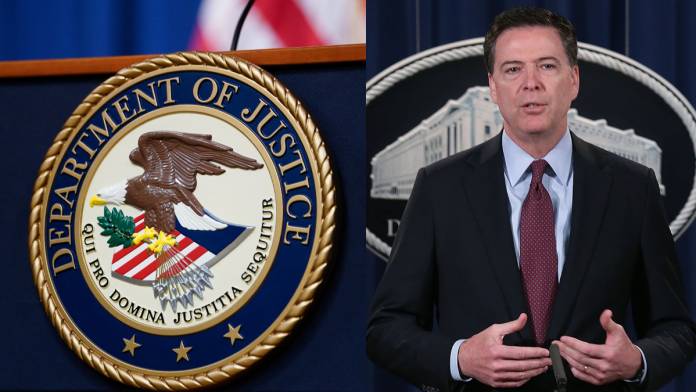A major courtroom development unfolded this week as prosecutors agreed to provide all grand jury transcripts and audio recordings from the case against former FBI Director James Comey for a private judicial review. This step comes after a federal judge ordered the materials to be made available for review so he can determine whether the defence should be allowed access. The case revolves around allegations of obstruction and false statements linked to Comey’s interactions with a U.S. senator in 2020. The Department of Justice initially resisted sharing the materials, citing the longstanding principle of grand jury secrecy.
U.S. Magistrate Judge William Fitzpatrick ruled that reviewing the materials in camera, or privately, was necessary to make an informed decision. While grand jury secrecy is an important part of the U.S. legal system, the judge emphasised that fairness to the defence must also be considered. He stated that seeing all materials first-hand would allow him to determine whether any of the evidence should be disclosed to Comey’s lawyers.
Timeline of recent court developments
The dispute has unfolded over several days, highlighting tensions between the DOJ and the defence team. Last Wednesday, Fitzpatrick sharply criticised the DOJ for what he described as an “indict first, investigate later” approach. He ordered the late September grand jury transcripts and audio, as well as evidence from the years-old “Arctic Haze” leak probe, to be shared with the defence.
The following day, the DOJ filed an appeal with U.S. District Judge Michael Nachmanoff. The government argued that Fitzpatrick had exceeded his authority and had not provided the “necessary findings” to justify overriding the strong public interest in keeping grand jury materials secret.
On Friday, Judge Nachmanoff returned the issue to Fitzpatrick, noting that the magistrate had acted within his authority. He also highlighted that the question of potential privilege violations had been properly raised and addressed. This effectively sent the matter back to Fitzpatrick to determine whether there were sufficient grounds for disclosure.
On Monday, a brief status conference was held, lasting less than ten minutes. During this session, the DOJ agreed to provide all transcripts, audio recordings, and 14 related exhibits for the judge’s private review. The defence announced plans to file an ex parte submission, a confidential document intended solely for the judge, outlining concerns about tainted or privileged materials.
Tainted agent claim under dispute
The defence has argued that an FBI agent who testified before the grand jury might have been “tainted” by exposure to attorney-client privileged information. According to Comey’s team, if the agent had access to such information, it could affect the fairness of the grand jury proceedings and the validity of the indictment.
The DOJ strongly rejected these claims, calling them speculation. Prosecutors stated that two agents who might have seen privileged materials were not involved in the grand jury presentation. Additionally, the agent who actually testified before the grand jury had no exposure to any privileged documents. The government argued that no misconduct or irregularity would justify dismissal of the indictment.
Judge Fitzpatrick made it clear that he needed to review all materials, including grand jury instructions, questions posed to witnesses, communications, and testimony. Only by seeing the full scope of the evidence could he make an informed decision about whether the defence should receive access to any part of it.
SCOTUS delivers tense rebuke over Trump’s emergency tariff powers
Next steps in the review
Defence lawyers plan to submit their ex parte filing detailing which materials they believe are affected by privilege or misconduct. The DOJ has agreed to provide all relevant materials to the judge promptly, including transcripts, audio, and exhibits. Fitzpatrick confirmed he would conduct the review privately and issue an order as quickly as possible, acknowledging the urgency for both parties.
This ongoing process underscores a rare and high-profile clash over grand jury secrecy, privileged information, and the integrity of the indictment. Both the DOJ and the defence are now awaiting the judge’s review and decision, which will determine whether Comey’s legal team can access key evidence from the grand jury proceedings.


